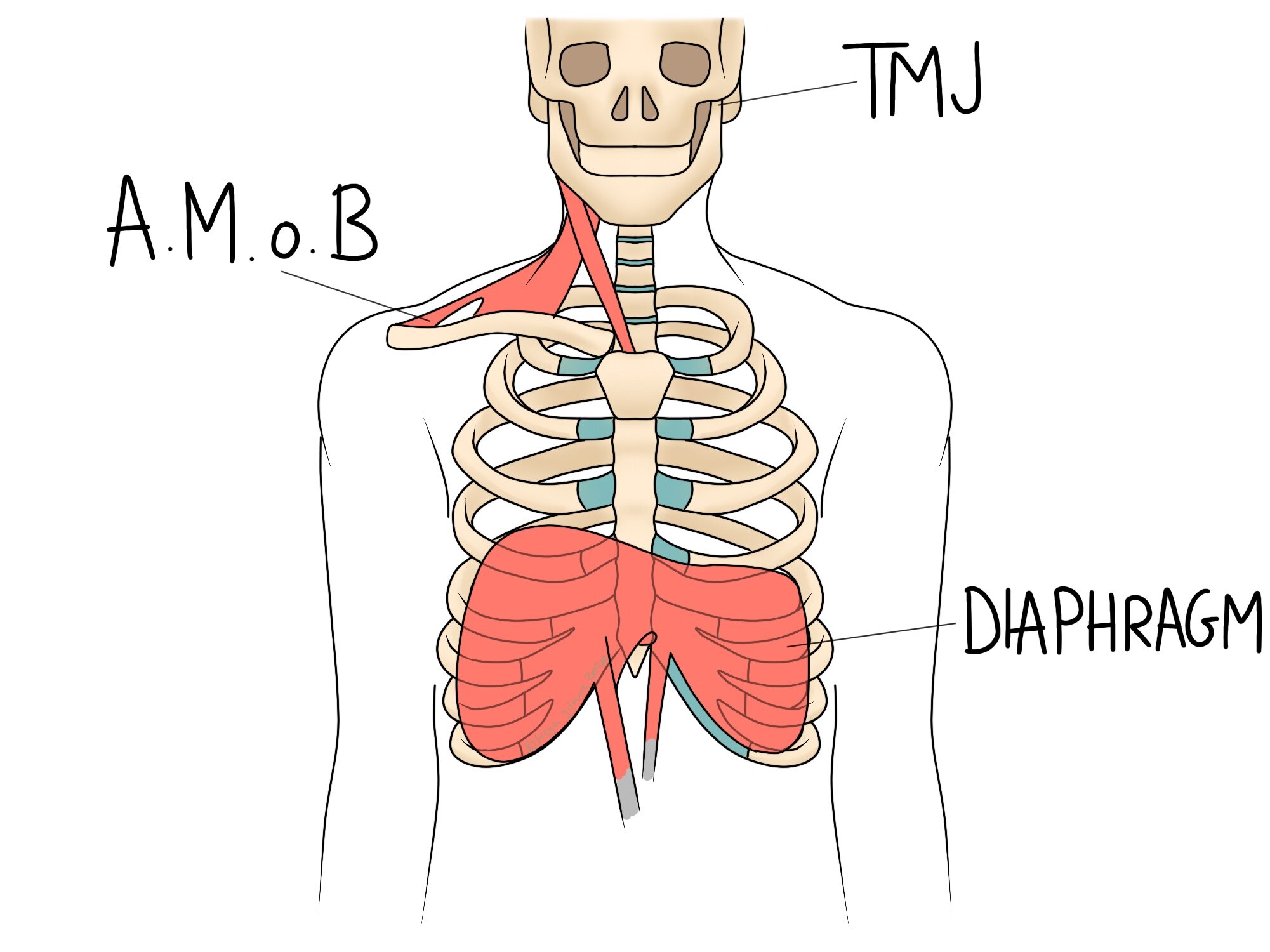Tension
Stress is almost synonymous with muscle tension, often around the shoulders and neck. We can’t solve your stress, but we can certainly look at your secondary symptoms.
Fight or Flight
The body can cope well with short term stress, but not chronic tension. Our physical reaction to stress has evolved to get us out of danger, so responses include:
Raised blood pressure and heart rate
Diversion of blood from the digestive system to the muscles
Increased adrenaline and cortisol
Effects of Tension on the Diaphragm
You might notice that when you’re stressed, your breathing changes. Typically, this means your abdomen stops moving as much as it should.
With the big efficient respiratory muscles under-working, we ask more of the smaller muscles. These are known as the Accessory Muscles of Breathing/Respiration. They sit around the top of the rib cage and have to work much harder to get the same effect. This leads to shoulder tension. It can also be accompanied by strange aches and pains around the upper back. Your osteopath will be able to work out these patterns and help you manage them.
Some people find breathing exercises have the dual benefit of helping the breathing pattern as well as providing some stress relief.
Headaches
When the shoulders and neck get tight, they can cause cervicogenic headaches. These are simply headaches that originate in the neck. There is typically a neurological link here. This might mean that tightness in the upper neck directly irritates a nerve, or just causes referred pain into the head.
These headaches typically start at the back of the head and neck and move forwards over one side of the head. They don’t tend to come with nausea, or an aura. Most last under a day, but if the stress and tension remain, it would not be surprising for them to last longer.
Your osteopath can help your symptoms and find other related factors for cervicogenic headaches.
There are also links between stress and Tension Type Headaches and migraines.
The TMJ (jaw joint)
Another area affected by shoulder tension is the jaw. There are a couple of relationships that can happen here.
If your stress comes with a hunched posture, this will affect the neck. If your shoulders come forwards, your head will have to tilt back a bit to stop you looking down. This puts a stretch on the front of the neck, and naturally pulls the mouth open. Most people will subconsciously try to keep their mouth shut, which requires the jaw-closing muscles to work hard to fight the pull from below.
Similarly, some people clench their jaw or grind their teeth in stressful periods. The same jaw-closing muscles are overworked here again.
A few of these tight muscles attach onto a disc of cartilage in the jaw joint itself. When tight, they can pull the disc and cause it to fold when the jaw moves. This can lead to clicking or locking in the joint. It’s a difficult joint to suffer with, but only because people generally don’t know who to see about it! Your osteopath is capable of treating the jaw and muscles around it, so don’t feel you have to suffer with a sore or clicky jaw.
If you’re feeling the muscular tension of modern day stress, book in today and see how much relief we can give you.


